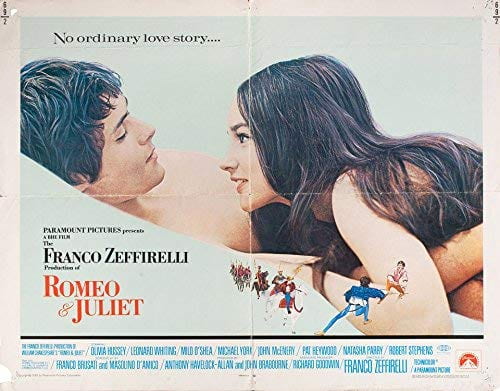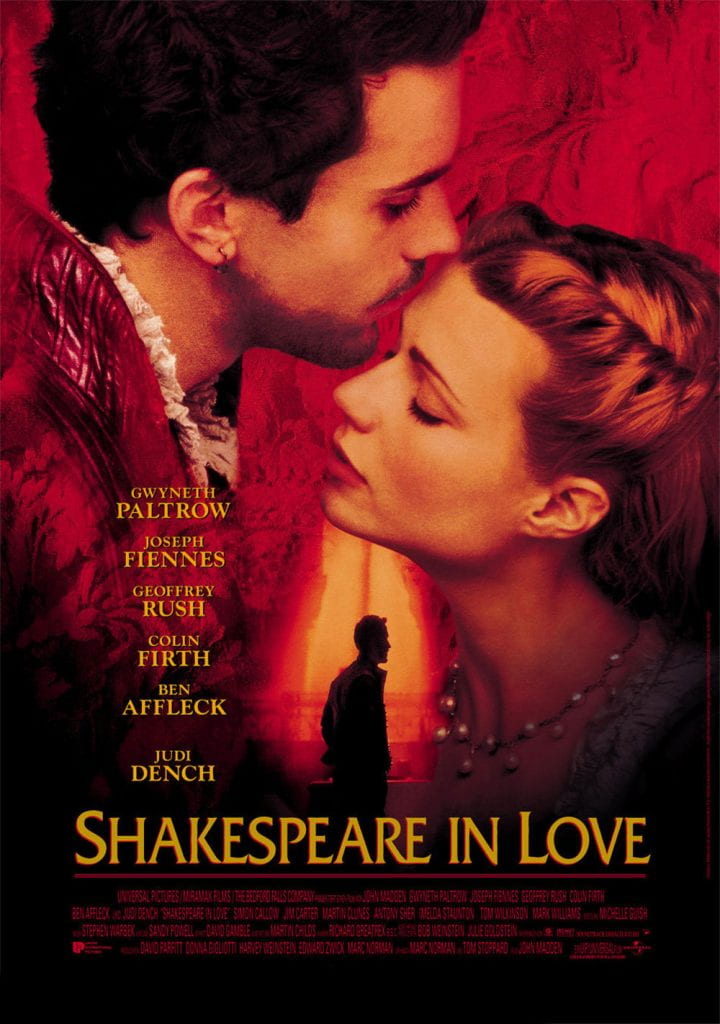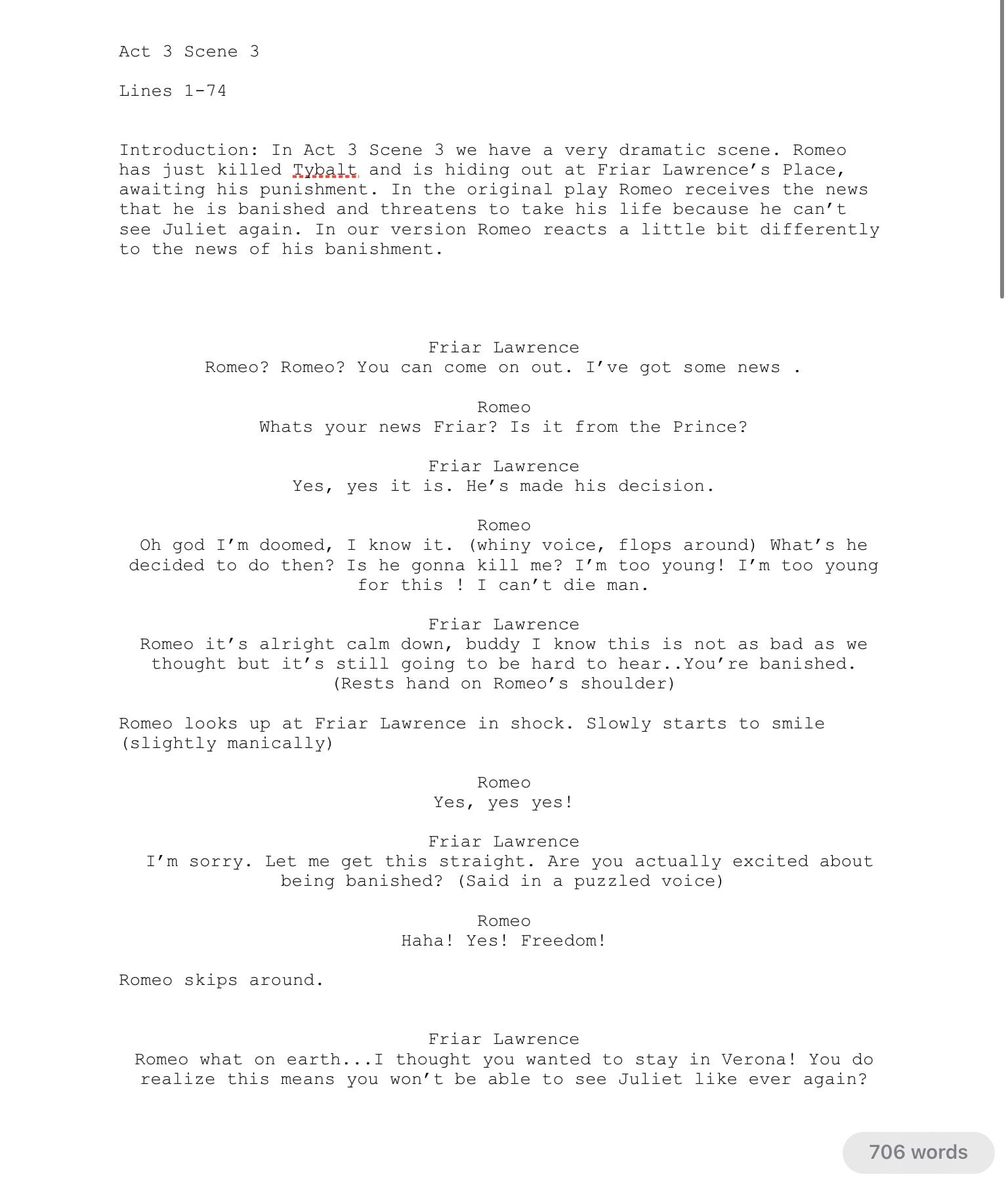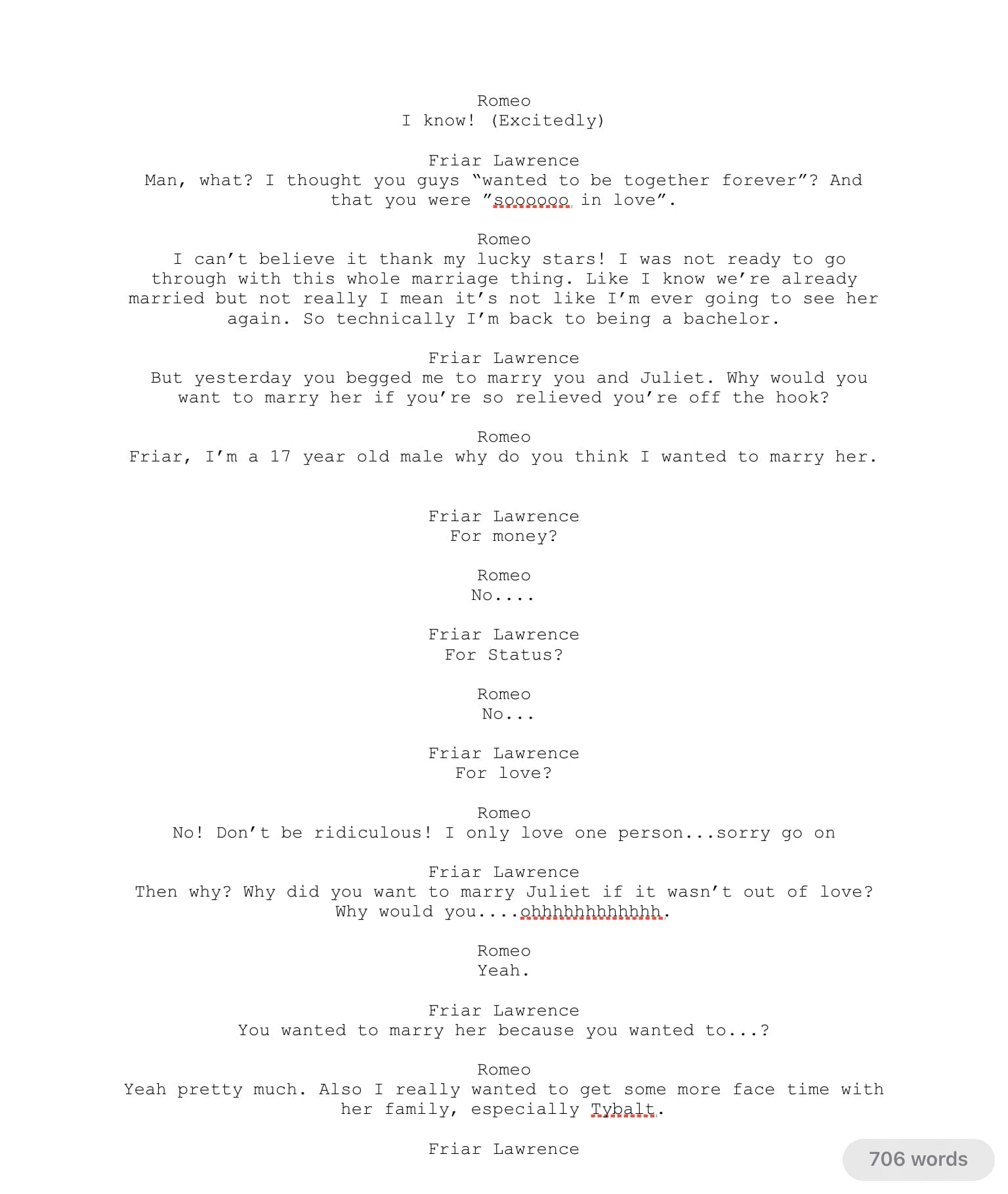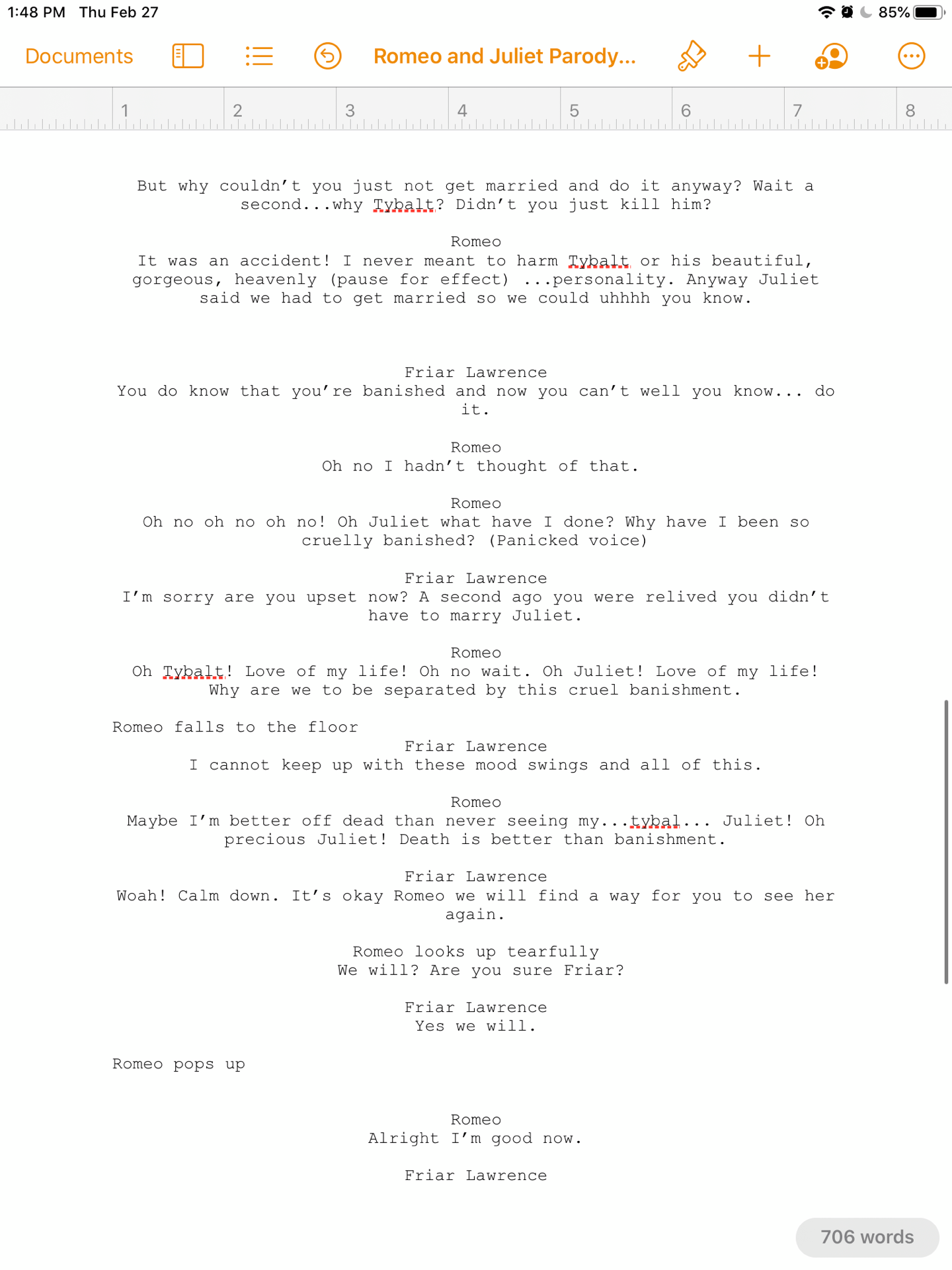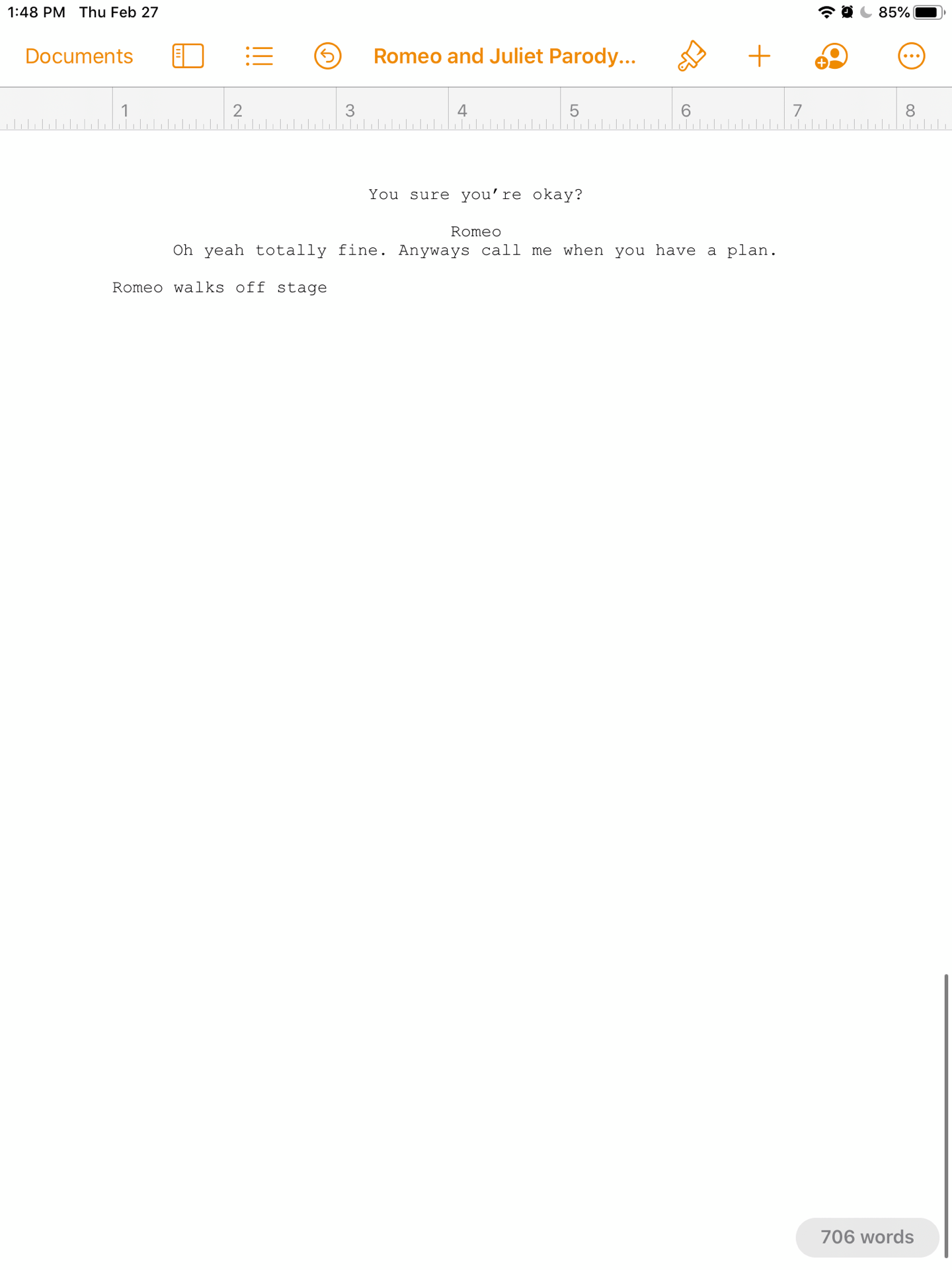Welcome back to my blog. In this latest unit we had a pretty odd project.

It was one of those PLP projects I just can’t explain without causing slight confusion. But before I dive into all of that, let me start with our driving question:
How can we, as Shakespearean actors, use parody to communicate the timeless nature of Shakespeare’s Romeo And Juliet?
So the topic is now apparent to all was Shakespeare’s Romeo and Juliet. Ah yes, a classic love story. However, you may have picked up on the word “parody” in that sentence. Yes, we made parodies of Romeo an Juliet. But before even getting to present the parodies we had to actually read Romeo and Juliet. Since you do not have a weeks worth of time to read Romeo and Juliet here is a nice shortened version:
There were many confusing parts of the play that didn’t make sense to someone born in the 21st century, things that would occur in the Elizabethan era but never now. An example of this is when we had to try and understand some of the formatting and staging of the play. There is a scene in the play when Romeo and Juliet get married and the wedding isn’t shown because that went against Elizabethan rules and religion.
Each week we would read a bit of the play. To show thy we understood certain key parts of the the play, we made a few TWILs (This Week I Learnt). You can find those below:
Week 1: “What is Love?”
Week 2: “Dream on”
Week 3: “Marry you”
I believe having to write these TWILS demonstrated the competency of being able to:
Share my own ideas when I write, speak, and represent!
I had to take my own ideas and opinions on Shakespeare’s writing and turn them into my own ideas. Another example of when I had to use this competency was when writing an essay on why Romeo and Juliet were the quintessential star crossed lovers. My thesis was that: In Romeo and Juliet, the young lovers are described as being star crossed, meaning that their fate is doomed. Their future was always going to be tragic because of the familial pressure put upon them and the rift caused by their families. Throughout the play Shakespeare uses specific language to make their impending deaths clear. If you would like to read the whole essay, click here.I used this example to answer the curricular competency of:
How can we overcome our current concerns, beliefs, and values to understand those of people in the past?
After/during reading Romeo and Juliet we watched a few different movie versions of it. My favorite was probably the Baz Luhrmann (1996) version because it exemplified how one could take the classic version of Romeo and Juliet and transpose it a different setting. Watching the 1996 version ultimately helped me understand how I could answer the driving question.
So now we (the humanities 10 class) understood what happened in Romeo and Juliet, now we had to understand how to take the seriousness and classicalness of the play and turn it in to a parody. To do this we watched some of my favorite parodies which I have included for your benefit:
https://youtu.be/t2mU6USTBRE
I now had an inkling of how I might take a Romeo and Juliet scene and make it into a funny scene. I decide to take the scene where Romeo overreacts a little to the news that he’s been banished. You can watch the original version below:
What I decided to do was to make it seem as if Romeo was in fact excited that he was banished and was talking to Friar Lawrence. The fun twist? I had to play both characters. We all did! You can see the script I made below for my scene:
Once the scene was completed, we basically just performed it. All of the performances were really funny to watch and I’m pretty proud of us for pulling it together in a couple of days. You can watch the video of my performance below:
To make this conclusion to my blog post truly memorable I put it into a Shakespearean translator, best of luck.
In conclusion, we readeth Romeo and Juliet, we wast baffled by Elizabethan customs, we laid eyes upon Weird Al, and we madeth parodies. But coequal to doth all of that, I hadst to useth a couple curricular competencies and literary skills to understandeth how we could taketh Shakespeare’s classic worketh and maketh t into a modern parody. And that’s all for the present day. Tune in soon!


